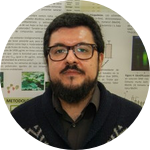About This Project
Gestational diabetes is increasing in the world population and the evidences shows that this pathology has negative impact on foetus development. Epidemiologic data shows that gestational diabetes is associated with cardiovascular diseases in adulthood which correlate with alterations in some genes and proteins of placenta. My proposal is to determine if education about physical activity can be a therapeutic tool to avoid the consequences of gestational diabetes in placenta and foetal outcomes.
Ask the Scientists
Join The DiscussionWhat is the context of this research?
Changes in nutritional status and sedentary lifestyle, especially in pregnancy, increase the probability of gestational diabetes (GD) in women. Obesity and sedentary lifestyle will increase the percentage of GD to over 10-15% of pregnancies in the next decade. This has important repercussions in the future health of newborn and mothers, leading to higher probability of chronic diseases.
Results from our lab and others, shows that GD induces alterations in expression of relevant genes and proteins for placental vascular and antioxidant regulation. But the detection of these changes at the end of gestation is too late to avoid the consequences of GD in newborns. For these reasons, is necessary to develop inexpensive strategies to avoid the placental alteration and improve foetus health.
What is the significance of this project?
With a inexpensive strategy, based in education using secure and dependable information, is possible to have a significant impact in the development of placenta to maintain the better environment for pregnancy and foetus development.The foetal life is the more important period for human development, so every alterations in the development of placental will affect the life of foetus.
Although it is well-known that physical activity has positive effects on health, many people still believe that activity should be reduced in pregnancy. For this reason, this project is focused in an educational strategy to determine the benefits for placenta development and foetus health. Whit these results, we will be able to spread this strategy as a secure and inexpensive tool for pregnant women.
What are the goals of the project?
First, we will design and produce educational materials for talks about the benefits of physical activity during pregnancy, with recommendations for secure exercise though pregnancy. Then, we will present these materials to a pilot group of mothers to determine if are neccesary some changes based in her experiences. With materials and team trained, we recruit a group of pregnant women with GD in a health care center. After the delivery, we will obtain the placenta to determine if the educational intervention have impact in the profile of molecular markers of placental physiology, compare with other group of GD pregnant without our educational intervention. Finally, we will do a survey to mothers for determine the variables that affected their exercise practice.
Budget
The first item will help us to design and produce a pedagogical kit of flyers and computer graphics for smartphones or other devices, to give a very explicative and secure information for gestational diabetic mothers to improve the physical activity to reduce hyperglicaemia and avoid the adversal fetal outcomes. It is important to note that these materials will be open for every medical staff or user, with a detailed protocol for it application.
The biological effects of intervention will be determine through molecular markers of disease in placental tissues and endothelial cells. The third item will help us to buy molecular biology kits for RNA/DNA isolation and RT-PCR reactions with samples collected from pregnant previously recruited. Placenta gives relevant information without any intervention in foetus neither mother.
Endorsed by
 Project Timeline
Project Timeline
Launch the project at the end in March 2018
Design and production of educational materials and the training of midwifery student will take a period of 5-6 months.
The recruitment of diabetic mothers will be make in between months 6, 7 and 8.
The collection of placentas will be due between months 9 and 12 of the project.
The molecular biology experiment with placenta will be due during months 12 and 18 of project.
The publication of results will be due between months 18 and 24 of project.
Apr 25, 2018
Project Launched
Jul 31, 2018
To obtain the consent form and the start clinical data of the first pregnant women recruited for educational intervention and collection of placenta.
Oct 31, 2018
To make a report about the opinion and clinical condition of pregnant women after one or two month after intervention.
Apr 30, 2019
Gene profile expression of relevant genes in placental tissue and endothelial cell cultures from pregnant women recruited in the project.
May 31, 2019
To send the manuscript with results to an open access journal.
Meet the Team
Team Bio
Susana Rojas, Research assistant with a great experience in the work with placental tissue and isolation of endothelial cells for molecular biology studies.
Marcela Cid, Midwife and Assistant Professor from Universidad de Concepción. Marcela is our clinical collaborator from 5-6 years a go and will be the connection between the research lab and the clinical centers.
Marcelo González
Biochemist (2004) and Doctor in Physiological Sciences (2009). From 2009 I am working in University of Concepción in the south of Chile, doing classes of Cardiovascular Physiology and Reproduction for students of Medicine School and Biological Science.
My main research interest is the vascular regulation of human placenta and the alteration or adaptations related with gestational diabetes.
From 2004 to date, I have published 27 articles in relevant journals of physiological and obstetrics science, mainly, and supervising the thesis of several students of bachelor and master levels.
Lab Notes
Nothing posted yet.
Additional Information
In the Vascular Physiology Laboratory from University of Concepción we have ten years of experience working in the human placental pathophysiology in gestational diabetes. The results of our work, that are supporting this project, can be reviewed in these relevant articles:
Benefits of physical activity in pregnancy
NO and BKCa roles in vascular regulation of placenta
High D-glucose effects in L-arginine transport in fetal endothelium
Oxidatives stress in pregnancy pathologies and vascular dysfunction
Project Backers
- 2Backers
- 1%Funded
- $15Total Donations
- $7.50Average Donation

